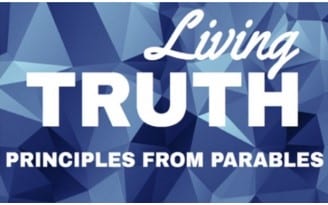
Matthew 22:15-22
October 22, 2023
At one time or another, every older child had tried to trick their younger brother or sister into giving them a quarter or a nickel. The younger child will have a coin and the older child will say, “Let’s play a game with your quarter. Flip the quarter and the rules will be heads I win and tails you lose.” The younger brother or sister says, “OK!” and flips the quarter. When heads appears, the older child says, “Heads, I win, the quarter is mine.” But often times the older child will give their younger brother or sister a second chance by asking, “Should we do it again?” The younger child immediately says, “Yes,” flips the coin, and when tails appears, the older child says, “Tails, you lose, the quarter is mine.” At this point it suddenly dawns on the younger child that this is truly a no-win situation. Whatever way the coin lands, the older brother or sister will win.
In our Gospel lesson for today Jesus was challenged with an interesting dilemma. The Pharisees and Herodians, two groups of people who actually hated each other, team up to try to discredit Jesus through a simple debate. There is an old saying that politics makes strange bedfellows and this situation is a classic example. The Pharisees were the Jewish religious leaders of the day and they believed it was wrong to pay taxes to a foreign government, in this case Rome – who was ruling their land. The Herodians were Jews, like the Pharisees, but they supported the Roman government and believed that it was proper to pay taxes to Rome, because of the services the government provided. As a result, the Pharisees hated the Herodians, because they viewed them as traitors. Jews should only have to answer to God, the Pharisees thought, not some foreign government. The Herodians, meanwhile, hated the Pharisees, because they thought it was right to support the government. Plus, they did not have any real interest in the church.
And yet, while both groups hated each other, they hated Jesus even more, because Jesus’ popularity took away from their own popularity among the people. In fact, these two groups not only wanted Jesus silenced, they wanted Him dead. What’s so amazing is that here is Jesus, God in the flesh, the only source of good in our world, standing right before them and yet all they see is evil and a threat. So they get together and come up with a way they believe they can get people to turn against Jesus or maybe even kill Him without having to do it themselves. They begin their scheme by approaching Jesus with some flattery and then posing a what they think is a perfect trick question to Him. In verse 16-17 they said, “Teacher, we know that you are true and teach the way of God truthfully, and you do not care about anyone’s opinion, for you are not swayed by appearances. Tell us, then what you think. Is it lawful to pay taxes to Caesar, or not?” Well that sounds innocent enough – just an invitation for some wholesome debate about whether paying taxes to Caesar is in accordance with God’s law.
But Jesus immediately knows that this debate is not about a genuine desire to understand God’s Law. It is all about trying to discredit Him. Jesus knows they are trying to trick Him, because if He says, “Yes, it is lawful to pay taxes to Caesar,” the Pharisees will consider Him to be a traitor to the Jewish people and the crowds of people may turn against Him. If He says, “No, it is not lawful to pay taxes to Caesar,” the Herodians will report Him to the Roman government and He will be executed. Jesus is fully aware of their intent to trap Him in His words, so He responds by saying, “Why put me to the test you hypocrites?” Both groups were looking for a simple “yes or no” answer, thinking He is going to upset one group or the other.
Instead, Jesus showed them the face on a coin and let them answer their own question by saying, “Give to Caesar the things that are Caesar’s, and to God the things that are God’s.”
We all have tough questions that we ask of God, such as, “Why did this bad thing happen to me? Why is my loved one suffering?” But sometimes we don’t like what we hear or we don’t hear what we’re expecting or there really is no good answer at the moment. Sometimes these are legitimate questions, but other times we already know the answers and God will never be able to answer in a way that will satisfy us. That’s an attitude problem we need to deal with, it’s not an issue of the answer, but the nature of the question. If we really want to have the answer, then we’ll have to be content with the result, even if it is contrary to our preconceived notions.
Jesus knew He was being tricked, and yet, He still answers their question, while also turning the tables on the Pharisees and Herodians. Jesus knows the question, “Is it lawful to pay taxes to Caesar?” is actually a religious question, meaning, “Is it God pleasing?” The assumption is that anything given to Caesar is to take from what rightly belongs to God. But Jesus’ answer shows that there are some things that, according to the will of God, legitimately belong to Caesar and the government. To give rightly to Caesar, then, is to serve God, because God is at work in our
secular government.
In our Old Testament lesson for today, Isaiah points out that Cyrus, who didn’t believe in God and was a terrible king of Persia, was still God’s instrument. The Lord was using him to work out some things for the ultimate good of his people. Likewise, when Jesus stood before Pilate at His trial, as Pilate bragged about his authority to release Jesus or to have Him put to death, the one thing Jesus did tell him was, “You would have no power over me if it were not given to you from above,” meaning from God.
Our government says we have to pay taxes, and while they have certain rates to insure they are paid what is owed to them, our God has only one rate when it comes to our giving to Him. He demands 100% from us, and His rate never changes. We owe God our lives. When we were baptized, God’s claim on us was total and complete. No part of our life can be excluded from our relationship with God. Now that’s easy to say, but not always easy to live. Sometimes we have things that we are reluctant to give to God, such as our money, our careers, a relationship, our weekends, or our work.
It actually would have been much easier if Jesus had just said, “Give to Caesar what is Caesar’s” and just stopped. But He did not stop there. Not only did Jesus say, “Give to God what is God’s,” but He also showed us what that meant. Jesus was the ultimate giver. He gave everything He had to God, namely His entire perfect life that led to His horrifying death on the cross, but He did so on behalf of all of us, so we could live and give to others.
So instead of asking, “Why did this happen?” perhaps we can ask ourselves, “What can we do? What good can be brought out of a bad situation? What new ways in my walk with God can I grow closer to Him, and serve others, and give Him my very best? How can we be the hands and feet of Jesus to a dying world? How can we use the things God has given to us to help others?”
A good example of this, that really opened my eyes, took place several years ago in which a husband and wife were attending a memorial service for the son of some of their best friends. The young man had been killed in Iraq and the grieving family announced at the service that they were going to make a special donation to the church in his memory. As the couple drove home, the wife looked at her husband and asked, “What are we going to give? Our friends lost their son and they are making a donation to the church in his memory. Our son came home from Iraq alive, and we’re not giving anything. We need to give something to the church, something to God, in appreciation for our son, who is alive.” So what are we going to give? That’s a question we should be asking on a daily basis.
The reason we give to God what is God’s is because God first gave to us His very own Son. We were bought at a price, and we remember this every time we come to this altar and hear the words, “This is my body given for you; this is my blood shed for you.” God has given us what is God’s, and so the real question we ought to ask is, “Can we give or return anything less to Him?”


